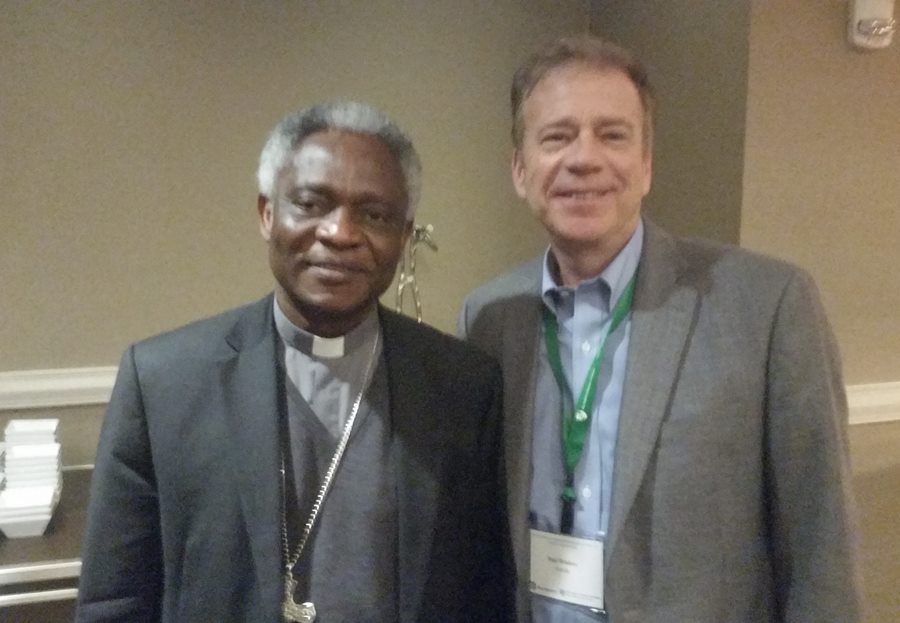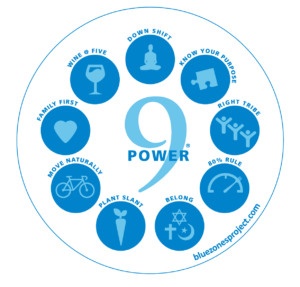A DIVIDED LIFE OR A LIFE OF INTEGRITY?
You’ve probably heard of the phrase, “It’s nothing personal, it’s just business”. It’s credited to an accountant who worked for American organized crime in the early 1900’s. It’s probably something he said often to rationalize his accounting work in the world of crime. In that simple statement, he was able to mentally separate his work from what he knew was right, good and virtuous. His heart and soul were specifically for faith and family while his brain and brawn were for the world of work.
When a person’s identity is split into distinct and separate sections, their authenticity and integrity are questioned by those they know and interact with. The Latin root of the word integrity is “integritas.” It means to be whole, or complete. A person living a divided life lacks integrity because, in fact, they are not whole, they do not act or behave consistently across the various roles they have in life; as a business leader, a parent, a citizen.
THE VOCATION OF THE BUSINESS LEADER
In early 2014, I came across a document published by the Pontifical Council for Justice and Peace entitled The Vocation of the Business Leader. The executive summary highlights the fact that Rome understands that business leaders, who are guided by ethical social principles, lived through virtues and illumined by the Gospel and Catholic social teaching, can both succeed in the world and contribute greatly to the material and even the spiritual well-being of society when they function properly and focus on serving the common good.
The document also addresses the fact that there are plenty of obstacles for business leaders to serving the common good. These obstacles can take many forms such as corruption, accounting manipulation, bribery, infringement of civil rights, fraud, theft, insider trading and poor stewardship of resources and more —but the most significant obstacle for a business leader on a personal level is leading a “divided” life. The divided life is the split between a person’s faith and daily business practice which can lead to imbalances and misplaced devotion to worldly success.
The hope expressed by the Pontifical Council was that this document would be a pocket guide for business leaders to help them make decisions at work informed by their Catholic faith.
WISDOM OF TWO SAINTS ABOUT YOUR INTEGRATED LIFE
St. Francis DeSales had something to say about the issue of the divided life. He said “It is an error, nay more, a very heresy, to seek to banish the devout life from the soldier’s guardroom, the mechanic’s workshop, the prince’s court, or the domestic hearth. …Be sure that wheresoever our lot is cast we may and must aim at the perfect life.” Since he lived from 1567 – 1622 the issue of living a divided life and having a misplaced devotion to worldly success isn’t a uniquely modern phenomenon.
St. Francis DeSales called banishing the devout life from work – or in today’s parlance, living a divided life, “heresy” (now that is strong language) while living an integrated life, one that combines faith and work and family as “perfection.” He then implores the reader to live a perfect life, to integrate the seemingly conflicting demands of faith, work and family.
He’s probably recalling Christ’s words found in Matt 5:48 “You therefore must be perfect, as your heavenly Father is perfect.” Christ is instructing us to strive for perfection, a perfection that can only be attained by living an integrated life.
St. Augustine wrestled with this… a lot. He gave an account of his disintegrated self in his autobiography The Confessions. He said that when he turned away from God he went to pieces. He was “afire to drink his fill of hell” which came from being intent solely on pleasing himself and being concerned with the awards and accolades the world offers. He wrestled with his integrity, his wholeness, his identity. It’s no different for many today.
THREE VOCATIONS: GOD, RELATIONSHIPS, WORK
In the book “The Pope and the CEO”, author Andreas Widmer mentions we all have three vocations or callings from God. The first or Universal Vocation is to know, love and serve God in this life so we will know, love and serve God in the next life. The second or Primary Vocation is our gift of self to others in one of four ways – married life, dedicated single life, the priesthood or consecrated life. The third or Secondary Vocation requires the use of our gifts and talents in the service of God and others while living out our universal and primary vocations. This is our 9-5 work that put bread on the table.
Notice the order of importance here: God, Relationships, then Work.
We also often flip our vocations to fit the order of importance as defined by the world and which we often accept – Work (you have to live don’t you?) then relationships (if we have time), and then God (maybe). This is pretty easy to do when we keep these three important spheres of our life apart from one another. It just happens. We can be taught by family, by clever marketing folks, and indoctrinated by mass media that you must possess stuff to be somebody. Often it’s just the passionate drive and passion for our work that can consume the majority of our waking hours, while families and God get the left overs.
An article in the Washington Post about the American Time Use Survey from the Bureau of Labor Statistics bears this out. The average American spends about roughly 8 hours per day at work which isn’t a surprise. The TV gets three hours of our day while God, under the heading of “religious activities”, gets under 9 minutes a day. Yes this includes Sunday. Ouch.
CLOSING THE GREAT DIVIDE – FORMATION TO ACHIEVE AN INTEGRATED LIFE
Pope Francis wrote in Evangelii gaudium that “Business is a vocation, and a noble vocation, provided that those engaged in it see themselves challenged by a greater meaning in life.” (No. 203) If those engaged in business live a divided life, they can easily dismiss their work as simply work and not as a calling from God.
A noble vocation, a noble calling from God also requires that we achieve excellence in all we do as business leaders. We are called by God to greatness not mediocrity. Our heavenly father wants no less for us as we would want for our own kids. We can only achieve God’s greatest aspirations for us by through living a life of integrity, a life of wholeness.
Here’s the catch. Integration is not easy. It requires continuous formation in three areas; Personal Mastery, Professional Mastery and Catechesis. I’ve found that if you don’t get yourself right you will never get the business right. If you don’t get the business running well you will eventually become, or stay, a slave to your business or constrain the business so it doesn’t grow to the vision you have for it. If you are living the tyranny of the urgent at work, peddling as fast as you can without making ground, you’ll never have time to develop a deep love for God who desires you to be successful in your vocation as a business leader.
Personal mastery turns your potential into actual performance. Mastery of self requires self-assessment, which is often quite uncomfortable for many people. However it’s also essential for achieving success in your life and it all starts with that 6 inches of gray matter between your ears. In short, if you want your business to change for the better, you have to change for the better. Take a good hard look at your company. Do you like what you see? It takes on the personality and attributes such as mindset, habits and the virtues of its leadership.
Professional mastery improves industry competence, helps to keep you abreast of new technology, best practices, and how to plan and execute on the plan to keep the business moving toward and ultimately achieving the vision you have for it.
The third area helps you to understand business in context of your Catholic faith. Catechesis draws us into a living, conscious and active faith in Jesus Christ. It helps business leaders, informed by their faith, make good decisions. Decisions that are made after considering the effect on the dignity of the human person – the employee, the client, the prospect, investors, suppliers and the contribution the decision makes to the common good. Decisions made in solidarity – those that consider the impact of others seen as our brothers and sisters in Christ – may not always produce the results you wanted or expected but by doing so you are engaged in the building up the Kingdom of God.
It’s good to note here that that Catholic Church does not, nor will ever, claim business expertise but offers principles to help with the formation of the business leader to guide their decisions.
Many people make the mistake of thinking that once they are finished with their institutionalized academics that their education (formation) is finished, when in fact it is just beginning! Becoming the best version of yourself as a business leader requires intentionality, drive, determination.
For the successful, learning and the application of that learning, is a lifelong pursuit.




